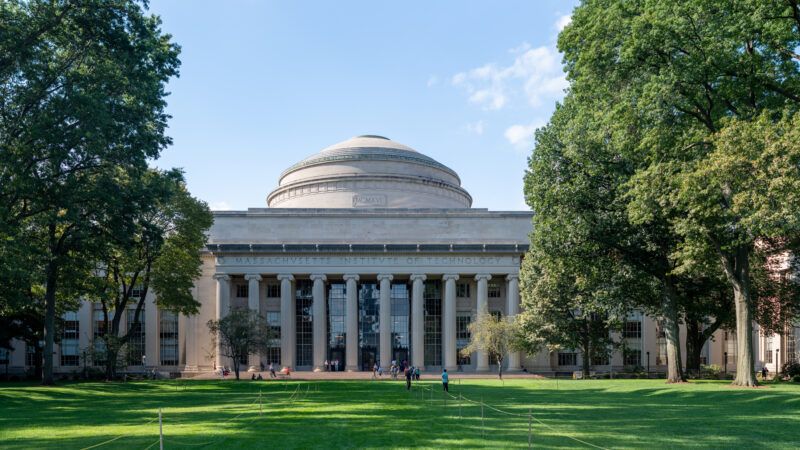MIT Canceled a Professor's Guest Lecture Because He Opposes Race-Based Admissions
"This idea of intellectual debate and rigor as the pinnacle of intellectualism comes from a world in which white men dominated," says one of the cancellation's defenders.

Dorian Abbot is a geophysicist at the University of Chicago. The Massachusetts Institute of Technology (MIT) invited him to deliver a guest lecture on climate change, then canceled the talk due to campus outrage over his views.
Notably, it was not Abbot's views on climate change that prompted the student, staff, and alumni revolt. It was his views on affirmative action: He had publicly criticized race-based personnel decisions in higher education. His views on these issues are not outside the mainstream—a majority of the voters in California, of all places, also oppose race-based preferences. Yet MIT decided it would be better not to risk further upsetting a coterie of extremely irritated activist voices.
This happened a few weeks ago, but it recently drew the attention of The New York Times. The paper obtained comments from the head of MIT's earth sciences department, who defended the decision to cancel the lecture:
He stressed that he talked to senior officials at M.I.T. before deciding to cancel the lecture. "It was not who shouted the loudest," Dr. van der Hilst said. "I listened very carefully."
Dr. van der Hilst speculated that Black students might well have been repelled if they learned of Dr. Abbot's views on affirmative action. This lecture program was founded to explore new findings on climate science and M.I.T. has hoped to attract such students to the school. He acknowledged that these same students might well in years to come encounter professors, mentors even, who hold political views at odds with their own.
"Those are good questions but somewhat hypothetical," Dr. van der Hilst said. "Freedom of speech goes very far but it makes civility difficult."
A scientist at another school defended the cancellation in even stronger terms:
Phoebe A. Cohen is a geosciences professor and department chair at Williams College and one of many who expressed anger on Twitter at M.I.T.'s decision to invite Dr. Abbot to speak, given that he has spoken against affirmative action in the past.
Dr. Cohen agreed that Dr. Abbot's views reflect a broad current in American society. Ideally, she said, a university should not invite speakers who do not share its values on diversity and affirmative action. Nor was she enamored of M.I.T.'s offer to let him speak at a later date to the M.I.T. professors. "Honestly, I don't know that I agree with that choice," she said. "To me, the professional consequences are extremely minimal."
What, she was asked, of the effect on academic debate? Should the academy serve as a bastion of unfettered speech?
"This idea of intellectual debate and rigor as the pinnacle of intellectualism comes from a world in which white men dominated," she replied.
It should be obvious that no place of healthy and open inquiry could thrive under such rigid ideological requirements.


Show Comments (84)